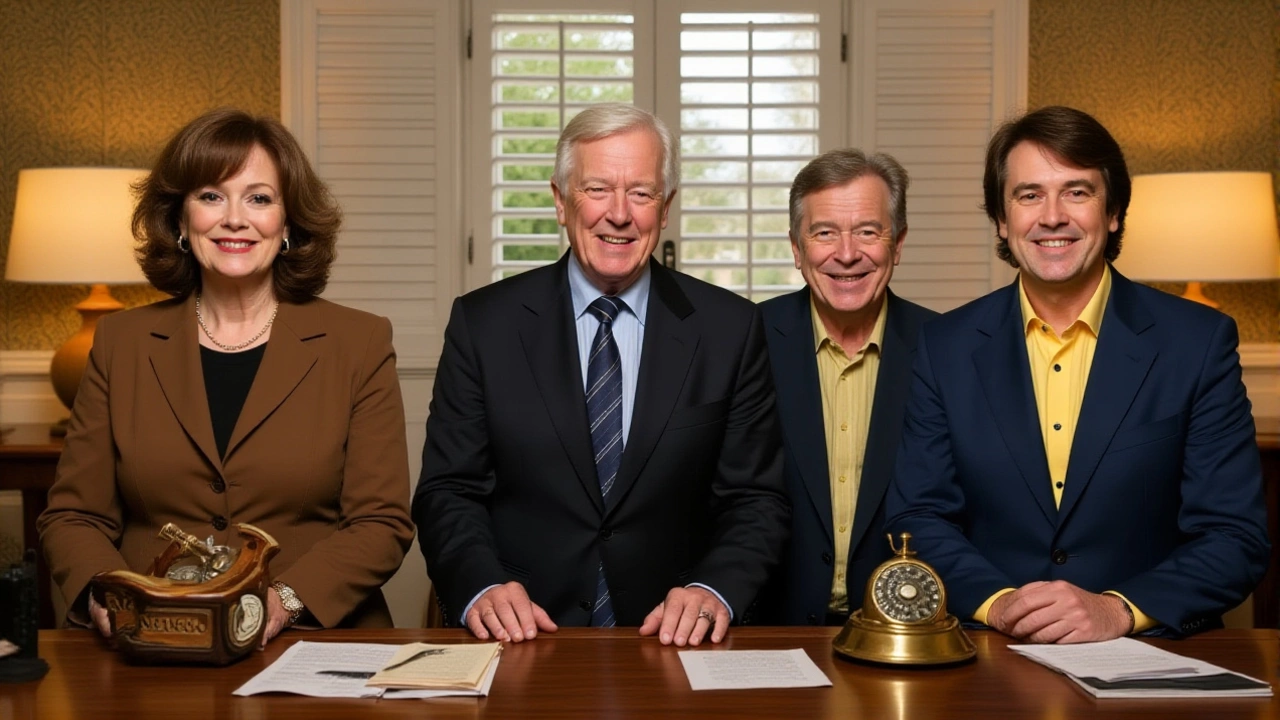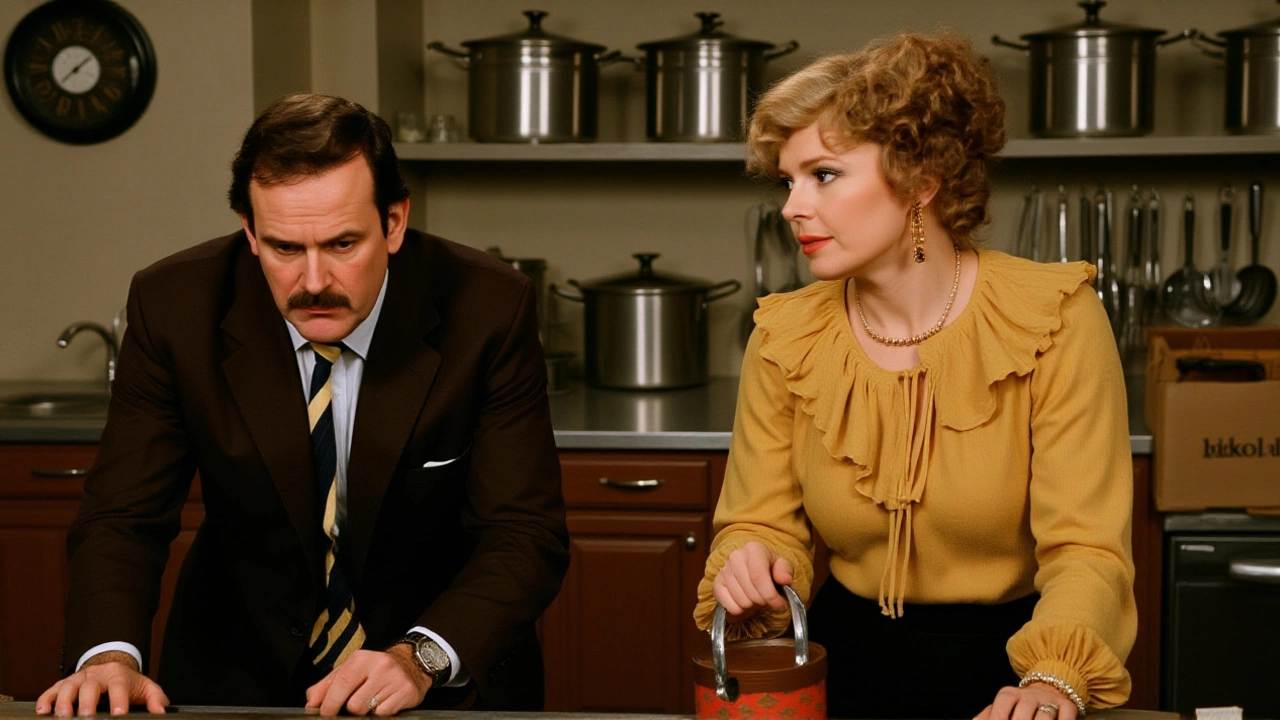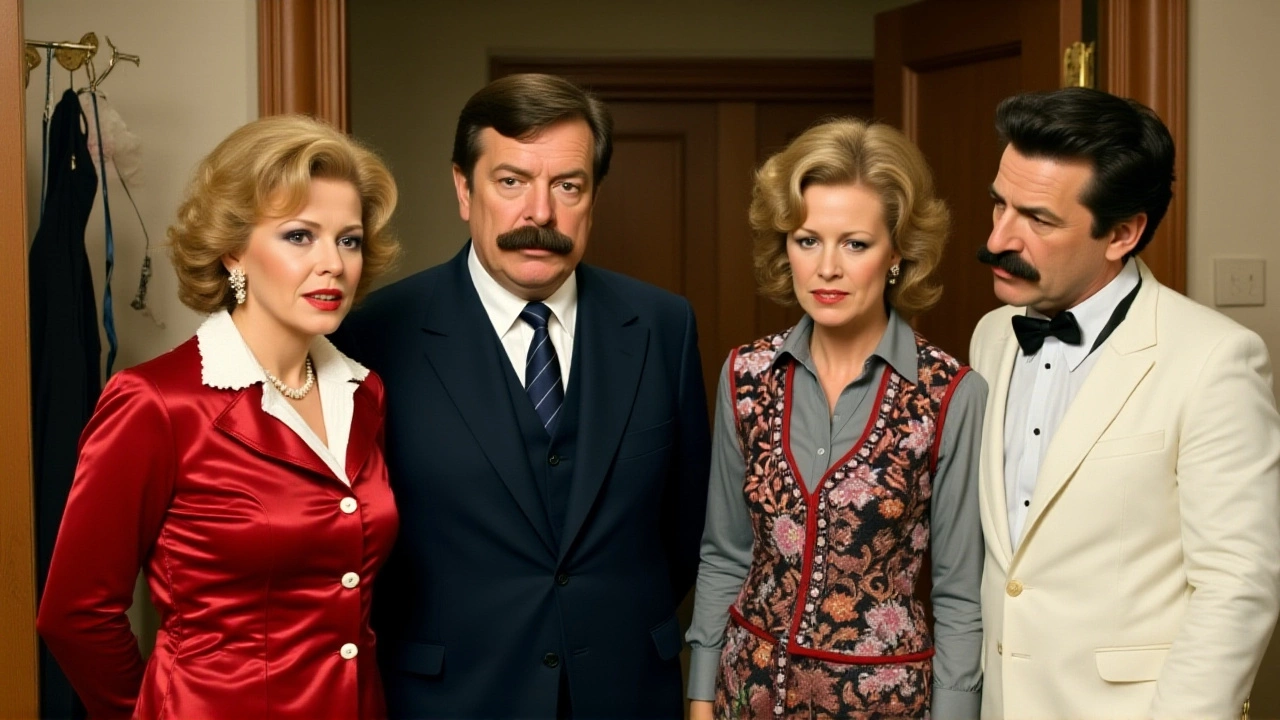On September 19, 1975, a tiny, chaotic hotel in the seaside town of Torquay launched one of the most enduring comedies in British history. BBC Two aired the first episode of Fawlty Towers, a show that would go on to define absurdity, social anxiety, and the art of the perfectly timed scream. Fifty years later, the 12 episodes — all written by John Cleese and Connie Booth — are still dissected, quoted, and rewatched. Critics and fans alike have ranked them, and the results are as divisive as Basil Fawlty’s temper. One episode, Waldorf Salad, earned a 2/10 from a single IMDb forum user. Another, The Germans, got a perfect 10. The truth? It’s not about numbers. It’s about why some moments still make you laugh until you cry — and why others make you groan.
Why Fawlty Towers Still Matters
It’s hard to overstate how unusual Fawlty Towers was for its time. While most British sitcoms of the 1970s leaned on cozy families or working-class charm, this one was a pressure cooker of class anxiety, xenophobia, and the sheer terror of being found out. Basil Fawlty, played with manic brilliance by John Cleese, wasn’t just a rude hotelier — he was a man desperately trying to pretend he belonged somewhere he never could. His wife Sybil (Prunella Scales) was his enforcer, his mirror, and his undoing. Manuel (Andrew Sachs), the hapless Spanish waiter, wasn’t a punchline — he was the only sane person in the room. And Polly (Connie Booth), the only one who could actually run the place, was quietly running the show.
Only 12 episodes were ever made. Two series. Six per season. Yet its cultural footprint dwarfs shows with hundreds. The British Film Institute ranked it 35th in its 2000 list of the 100 Greatest British Television Programmes — higher than Doctor Who at the time. Why? Because every line, every slammed door, every "I’m sorry, it was a pleasure" was written with surgical precision.
The Rankings: What Critics and Fans Really Think
Rankings vary wildly. One fan, Feologild Oakes, gave Waldorf Salad a 2/10 in a 2022 forum post, calling it "just hate[d]." But on IMDb, it holds an 8.2/10 from over 3,700 votes. That’s not a fluke — it’s a cultural divide. Some see the moose head and fire alarm chaos as genius. Others see it as overextended.
Here’s the most consistent pattern: the first series (1975, directed by John Howard Davies) is sharper, tighter. The second (1979, directed by Bob Spiers) tries for more complexity — sometimes too much.
At the top: The Germans (1975). A simple premise — a group of German tourists arrive — becomes a masterclass in escalating disaster. Basil’s panic, the accidental Nazi salute, the frozen silence after the final line: "I’m sorry, it was a pleasure." It’s not just funny. It’s heartbreaking. That’s why it’s ranked #1 across nearly every list.
Second: The Psychiatrist (1979). Basil, trying to impress a guest, pretends to be mentally unstable. The scene where he climbs a ladder to spy on a couple undressing? Pure, uncomfortable comedy. As Phoebe Maltz Bovy wrote in Substack: "There’s enough material here for an entire conference." And she’s right. The episode doesn’t just make you laugh — it makes you squirm.
Third: The Kipper and the Corpse (1979). A dead body in the hotel, a kipper on the plate, and Basil trying to keep it quiet. "A man is a man, Mrs. Fawlty." That line alone is legendary. The episode’s brilliance lies in its deadpan delivery — the horror is real, but the characters treat it like a minor inconvenience.

The Controversial Bottom: 'Waldorf Salad'
Why does Waldorf Salad (1979) sit at the bottom? The episode has a great setup: Basil tries to impress a food critic by serving a Waldorf salad. But Manuel, misunderstanding, brings a whole roasted goose. The critic is furious. Then, the fire alarm goes off — but it’s actually a burglar. Chaos ensues. The moose head? A surreal punchline. The fire alarm versus burglar alarm? A 10-minute stretch that drags.
Phoebe Maltz Bovy admits the moose head scene is "maybe the show’s greatest," but the pacing kills it. The episode feels like two sketches awkwardly stitched together. Compare that to The Germans, where every second builds tension. Here, the tension evaporates. And that’s why, despite its iconic moments, it’s the weakest.
Even IMDb’s own critic notes: "It’s trying to be a little too intricate." Basil could’ve just said, "I’m sorry, we’re out of Waldorf salad." But then we wouldn’t have the moose.
What the Rankings Reveal About Comedy
The ranking of Fawlty Towers episodes isn’t just about laughs. It’s about control. The best episodes — The Germans, The Psychiatrist, The Kipper and the Corpse — have a single, escalating idea. The weaker ones try to juggle too many threads. The Anniversary (1979), ranked #8 by Oakes, is a perfect example. Basil plans a surprise party. Sybil thinks he forgot. She leaves. Guests arrive. It’s emotionally rich — but the plot twist feels forced. Basil’s lie could’ve been resolved in 30 seconds. Instead, it drags.
Meanwhile, The Hotel Inspectors (1975) — ranked #9 by Oakes, #10 by IMDb — is a classic. Basil panics. He hides the hotel’s flaws. He lies. He pretends. And then… the final scene. The inspector asks if he’s ever been to the hotel before. Basil says no. The inspector smiles. "I’ve been here three times." That’s not just funny. That’s tragic. Basil’s entire identity is built on pretending. And in that moment, it all collapses.
The show’s genius is that it doesn’t need to be long. Ten minutes of pure, unrelenting tension — like in The Kipper and the Corpse — beats 25 minutes of scattered gags. That’s why, despite only 12 episodes, Fawlty Towers remains untouchable.

Legacy: Why We Still Watch
It’s not nostalgia. It’s recognition. We’ve all been Basil. We’ve all tried to impress someone, lied to cover up a mistake, and watched it spiral out of control. The show doesn’t mock the working class — it mocks the desperate need to be seen as something you’re not. That’s why it still hurts to watch.
And yet, we watch. Because somewhere, in the middle of Basil’s scream, we see ourselves. And we laugh — not because it’s ridiculous, but because it’s true.
Frequently Asked Questions
Why is 'The Germans' considered the best episode of Fawlty Towers?
'The Germans' works because it turns a simple social faux pas into a full-blown cultural disaster. Basil’s panic over German guests escalates naturally, with no contrived gags. The moment he accidentally salutes and shouts "Heil Hitler!" — then freezes — is comedy gold. The humor comes from realism, not exaggeration. It’s the perfect blend of social commentary and farce, and it’s over in under 25 minutes. No other episode delivers such a tight, devastating punch.
How many episodes were made, and why so few?
Only 12 episodes were produced across two series (1975 and 1979). John Cleese and Connie Booth deliberately limited the run to preserve quality. Cleese later admitted he feared repeating himself. The writing process was grueling — each episode took weeks to craft. They prioritized perfection over volume, and it paid off: no other British sitcom has maintained such a flawless reputation with so little output.
Who directed the two series, and how did their styles differ?
John Howard Davies directed the first series (1975), favoring tight, almost cinematic pacing with minimal cuts — perfect for the physical comedy. Bob Spiers took over for the second series (1979), bringing a more theatrical, dialogue-heavy approach. The difference is clear: Series 1 feels like a well-rehearsed play. Series 2 tries for emotional depth, sometimes at the cost of rhythm. Both are brilliant, but Davies’ work remains the gold standard.
Is 'Waldorf Salad' really the worst episode, or is it misunderstood?
It’s both. Critics like Phoebe Maltz Bovy call the moose head scene the show’s greatest moment, yet admit the episode drags due to the prolonged fire alarm sequence. The problem isn’t the idea — it’s the execution. Other episodes solve problems in under five minutes. 'Waldorf Salad' lingers on the same gag for nearly 10. That’s why fans who value pacing rank it lowest — even if they love the individual moments.
How did 'Fawlty Towers' influence modern comedy?
It set the template for cringe comedy decades before The Office or Modern Family. Basil’s inability to adapt, his social blindness, his escalating lies — these became the blueprint for flawed protagonists in shows like BoJack Horseman and Barry. But unlike later shows, Fawlty Towers never lets Basil off the hook. There’s no redemption arc. Just the next disaster. That honesty made it timeless.
Why does 'The Kipper and the Corpse' still feel so fresh?
Because it treats horror with deadpan absurdity. A dead body? Just another Tuesday at Fawlty Towers. The dialogue — "A man is a man, Mrs. Fawlty" — is chillingly casual. The episode doesn’t rely on slapstick. It uses silence, timing, and the characters’ complete lack of panic to create unease. That’s why it’s still studied in film schools. It proves comedy doesn’t need loud noises — just perfect timing and a willingness to ignore the obvious.
